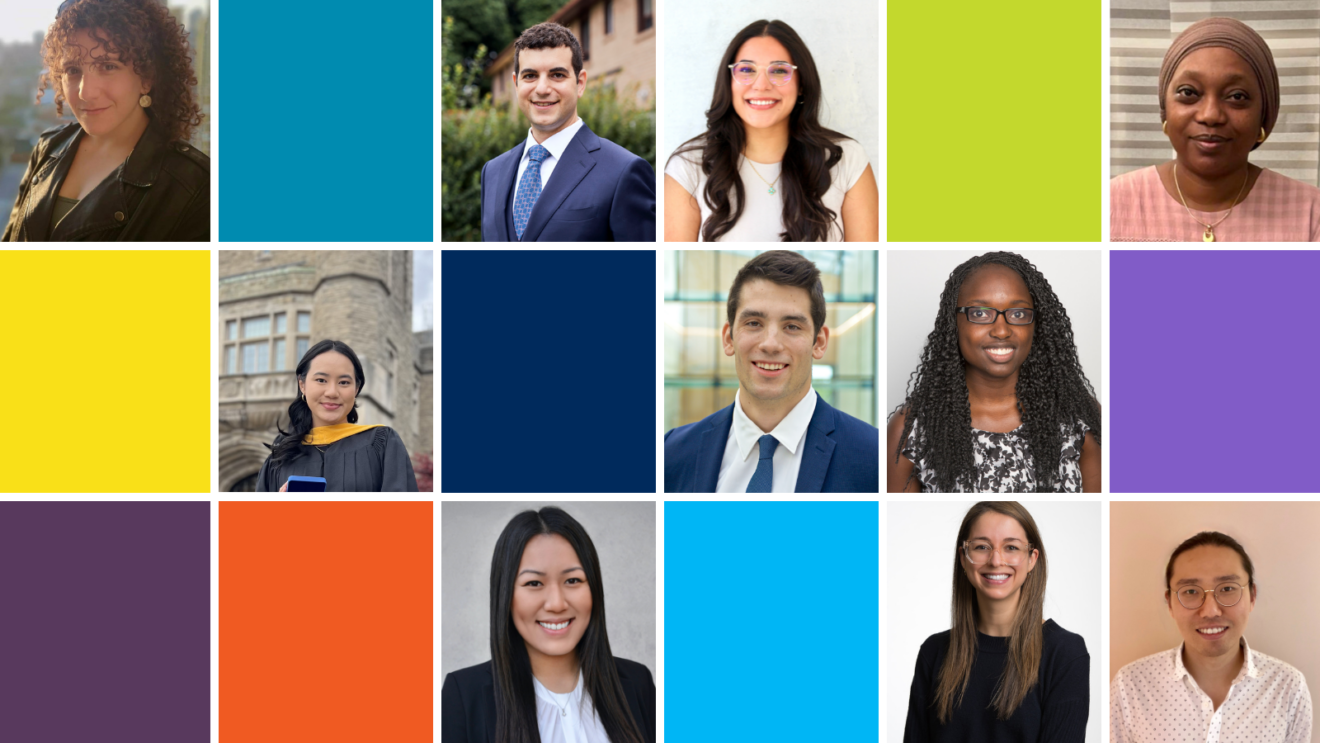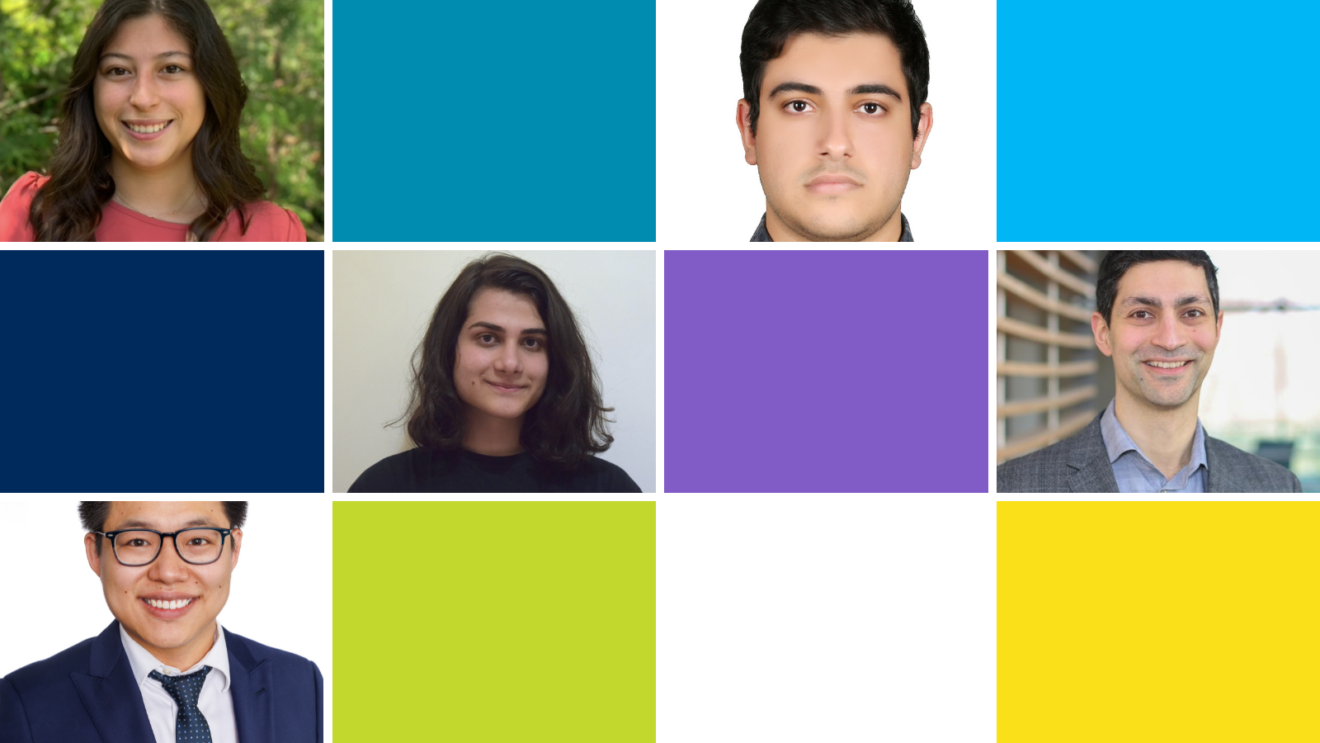By Alisa Kim
One thing that sets apart the Master of Science in Quality Improvement and Patient Safety (QIPS) program at the Institute of Health Policy, Management and Evaluation (IHPME), is relationships. “Because we keep the program relatively small, we can create lasting relationships. The strength of the relationships allows us—not only while students are in the program but once they’ve left—to continue collaborating and supporting each other well into the future,” says Dr. Christine Shea, an assistant professor at IHPME and director of the QIPS program.
2023 marks the 10-year anniversary of the MSc QIPS program. It was established partly in response to the passage of the Excellent Care For All Act in Ontario in 2010, which recognized the need for organizational commitment and accountability to provide patient-centred, high-quality care focused on improving outcomes, notes Shea. This remains the case today. The program provides students with current best and leading theory, knowledge, and practical skills needed to design, lead and evaluate transformative quality improvement and patient safety initiatives. The curriculum is co-designed and delivered by health care professionals. Students apply their learning to both their course assignments and by developing and leading a comprehensive improvement project within and beyond their professional context.
To mark QIPS’ 10th anniversary, Shea sat down with Alisa Kim of IHPME Communications to reflect on the unique aspects of the program, achievements of alumni and what she loves most about her job.
Who is the QIPS program geared toward?
It’s intended for people who want to make real and positive change to our health care system. It’s for any health care professional in their mid-to later-career. We do take some early career folks, depending on their experience, and really focus on how they can make sustained, transformational change for the better.
What makes the program special?
It’s a unique combination of interprofessional, interdisciplinary folks who come together; we stress how important this mix is for everyone. People like Wendy Kingsburg, who was a social worker for two decades, completed the program a few years ago and is now part of the quality improvement and patient safety team at Sunnybrook Health Sciences Centre. We emphasize peer-to-peer, faculty-to-student and student-to-faculty learning. We all learn together.
Another advantage we have is, being based in Toronto, we’re able to draw on a number of faculty who work in the health care system everyday. They are incredibly generous. They will come (often directly from work) and share what they know, connecting with the students and sharing their contact details with genuine offers to get in touch. The majority of faculty have been through the program themselves, like Dr. Alan Gob, who along with other QIPS alumni helped launch the Centre for Quality, Innovation and Safety at Western University.
Many of our faculty are very senior, with influential roles throughout the health system. They appreciate how critical it is to develop our students to be people who show up to work thinking, ‘I am equipped to make this better. Where do I start?’ Faculty want to be a part of that. These senior leaders actively support that improvement when they come in and contribute to the program.
What skills and competencies do QIPS learners come away with and bring to their roles?
I would say overwhelmingly, they are equipped to identify where improvements can be made, understand what is most appropriate to make those changes happen and sustain them into the future. That includes the concrete skills and tools that they apply, as well as the more subtle but incredibly important leadership and change skills that are required to motivate and empower others. They leave the program with the ability to not just figure out where they can make improvement, but our students understand and are able to work with others to make the change and sustain it long into the future.
What do learners value most about the program?
From what our students tell me, it’s the lasting relationships they develop. And not just with each other, but with faculty as well. It’s a special program where five years down the line, as a program director, I can connect with an alum and say, ‘you’re doing this great work. Would you be interested in sharing what you know with our students?’ And they say, ‘of course—I’m happy to do that.’ They’ll come in and connect with a new cohort and those relationships are developed. People in the system are starting to see this ripple effect where our alumni meet others and realize, ‘oh yeah, you did the master’s in this year? You know what you’re doing, come help us.’
What is most rewarding to you as director of the program?
Meeting everybody. I love our students. They’re all different. They have fascinating insights and experiences. We work very hard to create an atmosphere where people are willing to share and learn from each other. I don’t just mean the ins and outs of a particular tool or method, but really opening up and being quite honest about challenges they’ve experienced, all while supporting each other’s learning. I love getting to know our students, working with them and watching them develop.
I often forget how fresh and new all the information is and how foreign the skills are at the beginning of the academic year for them. By the end of the year, they are at a point where they can identify an issue, pull together and motivate stakeholders and deliver a succinct summary of all of this to a Board of Governors based on the experiences, course and project work they’ve done in the program. Watching that happen and supporting it—you can’t get better than that.
Alumni who wish to attend the QIPS reunion on the evening of Nov. 1st at the U of T Faculty Club should contact Dr. Shea at christine.shea@utoronto.ca.
Related News

Sign up for IHPME Connect.
Keep up to date with IHPME’s News & Research, Events & Program, Recognition, e-newsletter.
Subscribe to Connect Newsletter
Get in Contact
Communications
Marielle Boutin
Email Address: ihpme.communications@utoronto.ca





